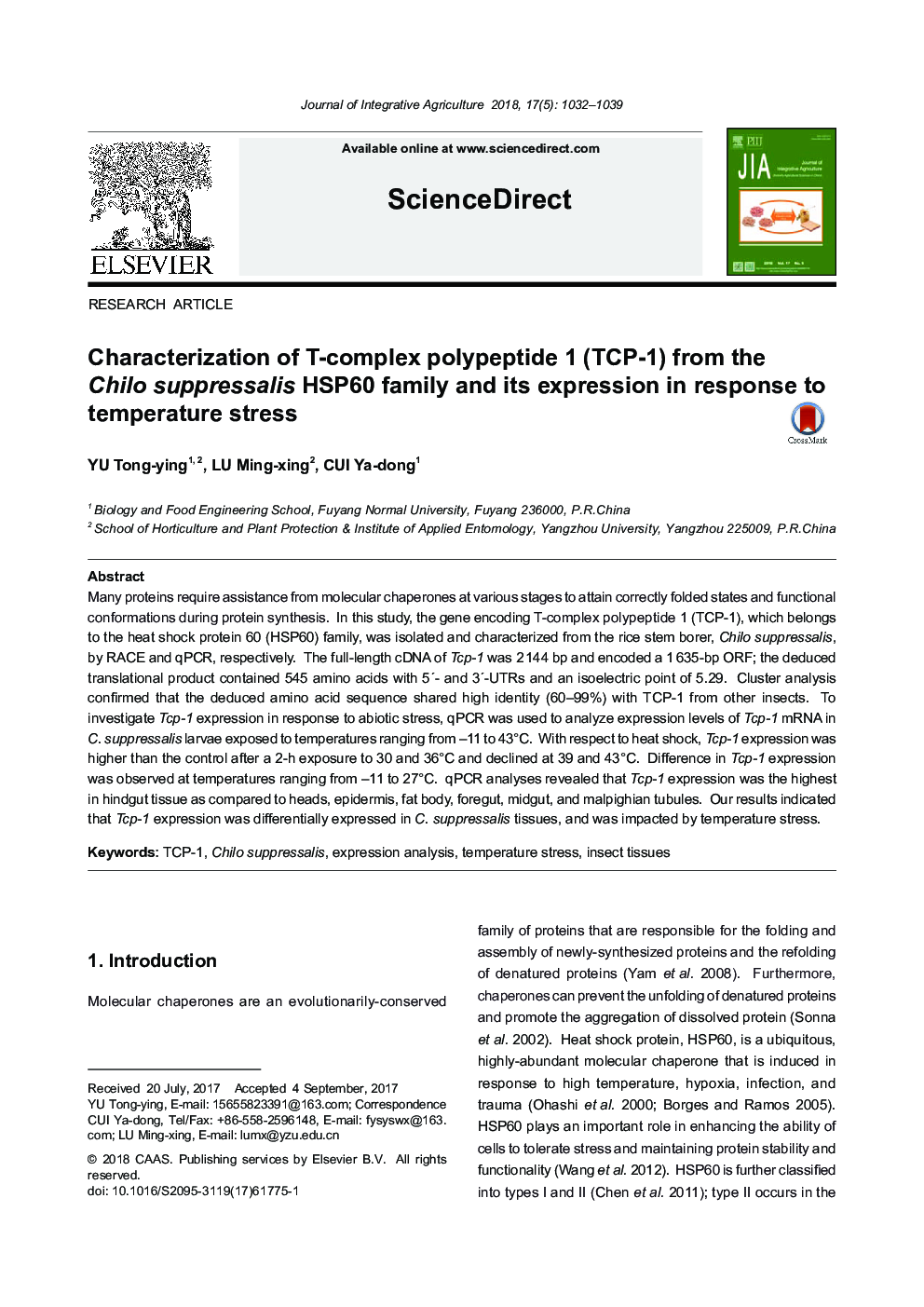| Article ID | Journal | Published Year | Pages | File Type |
|---|---|---|---|---|
| 8875622 | Journal of Integrative Agriculture | 2018 | 8 Pages |
Abstract
Many proteins require assistance from molecular chaperones at various stages to attain correctly folded states and functional conformations during protein synthesis. In this study, the gene encoding T-complex polypeptide 1 (TCP-1), which belongs to the heat shock protein 60 (HSP60) family, was isolated and characterized from the rice stem borer, Chilo suppressalis, by RACE and qPCR, respectively. The full-length cDNA of Tcp-1 was 2 144 bp and encoded a 1 635-bp ORF; the deduced translational product contained 545 amino acids with 5'- and 3'-UTRs and an isoelectric point of 5.29. Cluster analysis confirmed that the deduced amino acid sequence shared high identity (60-99%) with TCP-1 from other insects. To investigate Tcp-1 expression in response to abiotic stress, qPCR was used to analyze expression levels of Tcp-1 mRNA in C. suppressalis larvae exposed to temperatures ranging from -11 to 43°C. With respect to heat shock, Tcp-1 expression was higher than the control after a 2-h exposure to 30 and 36°C and declined at 39 and 43°C. Difference in Tcp-1 expression was observed at temperatures ranging from -11 to 27°C. qPCR analyses revealed that Tcp-1 expression was the highest in hindgut tissue as compared to heads, epidermis, fat body, foregut, midgut, and malpighian tubules. Our results indicated that Tcp-1 expression was differentially expressed in C. suppressalis tissues, and was impacted by temperature stress.
Related Topics
Life Sciences
Agricultural and Biological Sciences
Agricultural and Biological Sciences (General)
Authors
Tong-ying YU, Ming-xing LU, Ya-dong CUI,
